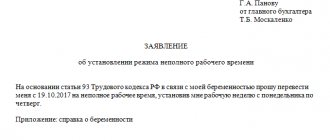When can you take a vacation?
In an ideal situation, each employee goes on vacation in accordance with the vacation schedule.
But this is not always the case. Therefore, for some workers, vacations are transferred to other dates, for others, they are not able to rest at all, and then the unused vacation is transferred to the next year, etc. As a general rule, after being hired for a new job, an employee has the right to take leave after 6 months of continuous work (Article 122 of the Labor Code of the Russian Federation). True, this rule does not apply to some workers, for example, persons under the age of 18. Based on a written application from such an employee, he should be granted leave, even if he has not yet worked for six months in the organization.
Vacation options
The domestic legislator has worked out in detail the reasons for granting leaves, as well as the types of the latter. So, conditionally, all the time for rest, not counting standard weekends and “red” dates of the calendar, can be divided into three groups, within which there are many subtypes with their own characteristics:
- Basic vacation periods (payable).
- Additional (also subject to payment)
- Rest from work without accruing money.
All types of vacations are calculated in regular days according to the calendar, that is, they include all Saturdays and Sundays. At the same time, the code directly states that official holidays should not be included in the rest period (Part 2 of Article 120 of the Labor Code of the Russian Federation). But there are exceptions here too.
It is important to know! When calculating the length of the vacation period for seasonal personnel and citizens who have entered into a short-term employment contract, only working days are taken into account.
In addition to the total amount of time allotted, the counting system influences the determination of the amount of vacation payments. Next, we will consider the types of leaves under labor law, the procedure and grounds for their provision, duration, and other features.
Main annual
It is this type that is usually meant by the word “vacation”. If you refer to Article 115 of the Labor Code of the Russian Federation, it becomes clear that its minimum is 28 calendar days. Certain groups of employees can count on a longer period, but we will talk about rest with a number of days in excess of the norm later.
Legislative acts guarantee that management is responsible for the timely departure of employees on planned vacations with the required payments for this period. Moreover, according to Article 125, it can be divided into separate periods, but so that at least one of them is 2 full weeks. The same norm establishes the possibility of returning an employee from vacation, but only with his consent.
As for payment, it should be calculated based on the average amount earned by a particular person per month. Based on Article 139 of the code, we can say that the calculation is performed as follows:
- All amounts of money due to an employee under an employment contract (salary, remuneration and bonuses) are subject to accounting.
- Using addition, the employee’s income for the past 12 calendar months is calculated.
- The above amount should be divided by the number of months in a year - 12 - and by the average number of days in a month - 29.3.
- The resulting average daily earnings should be multiplied by the number of vacation days to obtain the funds payable.
Next, you should familiarize yourself with such a regulatory act of the enterprise as the vacation schedule. It is required to be drawn up and must be confirmed at the end of the year preceding the working period for which employees are provided with days off, namely until December 17. When an enterprise has a primary trade union organization of employees, the document will have to be agreed upon with it.
The schedule is made so that subsequently there are no disputes within the team regarding the turn to go on vacation. In addition, such an approach to planning will make it easier to take into account the opinions of everyone, make it possible to clearly calculate the required period of time off and respect the rights of each employee to rest days.
But there is a certain exception to the rule. The Labor Code of the Russian Federation and other federal laws name many groups of employees who are entitled to go on vacation at a time when it is convenient for them. For example, these are:
- working children;
- citizens who are raising two children (or more) under the age of 12 alone;
- single military personnel with children under 14 years of age;
- combatants;
- participants of the Great Patriotic War;
- employees previously recalled from paid leave - for the remainder of the year or in the next calendar year.
The planned vacation schedule must be drawn up with the participation of all employees, and then communicated to them against signature. This is a kind of guarantee of their right to rest, the opportunity to make plans for the whole year without fear of sudden changes.
If an employee joined the team of workers during the year, the employer is obliged to either make changes to the schedule or issue an addition to it, which will reflect the rights of the new specialist. Most often, the procedure is approved in advance in other company regulations issued locally. The employee should take care of his own rest and monitor his superiors.
An important rule is that a new employee can apply for leave 6 months after employment, and not 11 months, as was the case before the adoption of the corresponding resolution in 2002 by the Labor Code of the Russian Federation.
Advice! Children, pregnant women, people who have adopted a child can go on vacation before six months have passed.
Additional
From a lawyer’s point of view, additional leave should be understood as one that is provided in addition to the usual 28 days and is also subject to payment in accordance with the average salary of the employee. According to Article 116 of the Labor Code of the Russian Federation, “bonus” days of rest are provided for the following citizens:
- Those employed in production with dangerous and harmful conditions.
- Employed in the Far North or equivalent areas.
- Having a special nature of work (the list of positions and the corresponding additional days are indicated in the Decree of the Government of the Russian Federation of December 10, 2002 No. 877).
- For employees with irregular working hours (working hours in which a person can be involved in performing duties under a contract at the request of his superiors outside of normal working hours).
- And also for other citizens, in accordance with federal legislation. These are, for example, officials of the Investigative Committee of the Russian Federation and municipal employees.
In addition, each employer has the right, at its own expense, to send other employees on additional paid leave. The corresponding guarantees are enshrined by him either in collective acts (agreement or agreement), or in some internal regulatory act of the organization.
The amount and procedure for granting such leaves are regulated in detail by Articles 117-119 of the Labor Code of the Russian Federation, as well as by-law regulations adopted in their development (decrees of the Government of the Russian Federation, Presidential decrees and others).
It is important to know! There is also a provision that the part of paid leave exceeding the standard 28 calendar days can be replaced at the request of the employee with a cash payment. The restriction applies only to children, pregnant women and workers in harmful and dangerous conditions. They are not entitled to such a replacement.
Extended
This type of leave is essentially the same as annual paid leave. The only difference is that the legislator especially protects certain categories of working citizens by providing them with a certain number of “extra” days of rest. These include those who need it for physical or social reasons. Here are some examples:
- For minors, the rest period is 31 days - Article 267 of the Labor Code of the Russian Federation.
- 42 days for teachers - Resolution of the Ministry of Labor dated 08.08.1996 No. 50.
- Rescuers of the Ministry of Emergency Situations are given rest for 30-40 days, depending on their length of service and position - clause 5 of Art. 28 of the Federal Law of August 22, 1995 No. 151.
- Medical workers rest for 36 days every year if they are included in the list approved by Resolution of the Ministry of Labor dated 08.08.1996 No. 50.
- Disabled people are entitled to 30 calendar days of rest per year - Art. 23 of the Federal Law of November 24, 1995 No. 181.
As for the procedure and procedure for determining the priority of leave, as well as the amount of payment for this period, the same rules apply here that were described in relation to the main paid leave.
Training
To begin with, you should pay attention to a number of conditions imposed by the Labor Code of the Russian Federation on a student employee applying for the appropriate leave:
- Training must take place in an institution that has state accreditation (the corresponding register is maintained by the Federal Service for Supervision of Education and Science).
- You can study at different levels:
- average general;
- secondary vocational;
- higher;
- undergoing advanced training.
- Education must be acquired by the employee for the first time.
- A card must be received from the educational institution - a “call certificate”, confirming the need to appear for the exam or for other reasons.
In this case, training can be an initiative of both the employer, interested in more educated personnel, and the employee himself.
It is important to know! The cases in which leave must be granted are described in Articles 173-176 of the Labor Code of the Russian Federation and depend on the degree of education received.
The same can be said about the duration of rest: to pass a session at a higher educational institution, 40-50 days are given depending on the course, and when receiving secondary vocational education - 30-40.
Despite the fact that regular study leave involves paying the employee average earnings, the legislator has provided for the opportunity to receive the necessary days of rest while retaining only the person’s job. For example, this is a 15-day break from work to take entrance exams to a university or the same period to pass the final certification in preparatory courses.
There is also such a useful guarantee of the right to education as payment for travel to and from the place of study once a year. In addition, at the request of the employee, 10 months before the start of the final certification of a bachelor, specialist or master, you can switch to working under the rules of a shortened week. This means that each seven-day week will contain 7 hours less labor.
Maternity leave
The Labor Code of the Russian Federation establishes the opportunity for a woman to take a break from work for a certain period before and after childbirth. So, the standard vacation period is 140 days: 70 before and 70 after the birth of the baby. For multiple pregnancies, a little more rest is added: 84 before and 110 after, for a total of 194 days.
To receive leave, you must submit a written application addressed to the employer, supplementing it with a certificate of incapacity for work. The amount of the benefit is calculated in accordance with Article 11 of Federal Law No. 255 of December 29, 2006, namely 100% of average earnings. It turns out that we can again turn to the calculation scheme described above. The only peculiarity is that two years will be taken into account, not 12 months (Part 1 of Article 13 of the Federal Law of December 29, 2006 No. 255).
The exception is women whose insurance length (official work experience under employment contracts) does not reach 6 months. For them, the payment is equal to the minimum wage established throughout the country. Regional increasing coefficients must also be taken into account.
Child care up to one and a half/three years old
Leave is also provided for caring for a newborn. It is provided after maternity leave and continues until the baby reaches the age of 3 years.
Advice! This right can be used not only by the child’s mother, but also by the father, grandparents, other relatives or guardians. The main thing is that they actually provide care. Leave can also be divided between named persons, if necessary.
The amount of the monthly child care benefit (given until the baby reaches one and a half years old) will also be calculated taking into account the average salary for two years, but will be 40% of it. The rule also applies here regarding payment based on the minimum wage (40% of the amount is taken) if a woman does not have enough insurance coverage or is unemployed.
At your own expense
As for leave without pay, it is provided for by many provisions of the Labor Code of the Russian Federation.
For example, this can be used by parents of two or more children under 14 years of age, legal representatives of a disabled child under 18 years of age, single fathers and mothers with children under 14 years of age, if the relevant provisions are contained in the collective agreement (agreement). The length of such leave is up to 14 days, and the time of its provision is determined by the employee himself.
These include the already mentioned additional unpaid leaves in connection with studies. In addition, Article 128 of the code speaks of the possibility of taking leave for family reasons or any other valid reasons upon personal request. Its duration will be determined solely by the agreement of the employer and employee.
There is an indication of the unconditional provision of a period of rest, upon application, to the groups of people listed below:
- For those who went through the Great Patriotic War - for up to 35 days a year.
- For workers on pensions (up to 14 days per year) or citizens with disabilities (up to 60 days per year).
- For those getting married, people experiencing the death of close relatives, as well as fathers and mothers of newborns – up to 5 days.
Annual leave - how to take it, how much holiday pay should be paid
An employee can fall ill at any time. And vacation time is no exception. At the same time, sick leave is paid on the basis of a general established procedure with some features that must be known to the employer. The first point concerns the postponement of vacation. In accordance with the norms of the Labor Code, sick leave for the period of vacation becomes the reason that the employer is obliged to transfer the unused period to another period, taking into account the wishes of the employee. There are some subtleties in the case when the vacation is extended due to illness of the vacationer.
The annual departure from work itself, while maintaining pay, is a method provided for by the legislation of the Russian Federation to preserve the working capacity of citizens. The right to receive such rest for Russians is guaranteed by the Constitution, but they rarely want to receive it for all 28 days at once (more for a number of professions) at a time. Thus, employees often divide their own vacation into separate periods of up to 7 days. This approach leads to a situation where an employee is not able to use the entire vacation in order to get proper rest, as well as restore his ability to work. In fact, getting a minimum vacation on a single day is possible, but it is far from an optimal solution.
Dividing vacation into parts
The employer must ensure that employees are provided with holidays every year and that the minimum duration of holidays complies with legal requirements. But for an employee, vacation is the exercise of the right to rest. There is no obligation to take vacation. This allows employees to abuse their rights in some cases, which will result in trouble for their employers during inspection.
If an employee does not want to take the entire vacation, he has the right to divide it into parts. The law allows this, establishing only one restriction: one of these parts must be no shorter than half of the standard leave, that is, two weeks. This requirement is justified from a medical point of view. 14 days is the minimum period required for the body to restore normal performance.
The rest of the rest time is distributed randomly throughout the year. The employee decides how much and when to take vacation. It is only necessary to agree on the terms with the employer in advance. The total duration of all parts of the vacation should not exceed the number of rest days allotted to the employee.
How vacation is granted in 2021 according to the Labor Code of the Russian Federation
Labor legislation establishes the right to periodic annual paid leave. Every worker, after working for eleven months, must go to rest. The minimum period an employee can count on is twenty-eight days. The worker receives payment for these days into his salary account or receives it personally at the company’s cash desk. In the Labor Code, this right is prescribed by Article 71. It is better to view any articles with comments to it. Even if it is the Labor Code. This makes it much easier to understand all the nuances of the legislation.
Part seventeen of the code talks about periodic annual vacations. In accordance with it, every employee has the right to leave. Compensation payments are accrued for vacation days. The duration of rest depends on many reasons (experience for some professions, social status of the employee). Some people, in addition to being granted basic annual leave, are also entitled to additional vacation days. The duration of these holidays cannot be less than twenty-eight days. According to the Labor Code of the Russian Federation, the entire duration of rest in 2021 must be reserved for the employee. Some categories of employees are granted the right to additional annual rest.
Vacations for Chernobyl survivors
Chernobyl survivors are paid for additional leave by social security authorities. To do this, issue the Chernobyl employee a certificate of average earnings. Compose the certificate in any form. Please indicate in it:
- the total amount of vacation pay. This amount is not subject to personal income tax and insurance premiums (letters of the Ministry of Finance of Russia dated July 23, 2010 No. 03-04-05/10-413, FSS of Russia dated November 17, 2011 No. 14-03-11/08-13985);
- the period for which additional leave is granted.
The certificate must be signed by the head of the organization and the chief accountant (with a transcript of the signatures) and certified by a seal. This is stated in subparagraph “b” of paragraph 2 of the Rules for payment of additional paid leave, approved by Decree of the Government of the Russian Federation of March 3, 2007 No. 136.
Situation: can an organization provide an employee who suffered from Chernobyl with additional leave for several years in a row? In previous years, the employee refused to take vacation time and this year decided to take all unused additional vacation time off.
In private explanations, employees of the Russian Ministry of Labor indicate that additional leaves that the employee did not use cannot be added up.
The obligation to provide Chernobyl employees with additional paid leave is established by Law of May 15, 1991 No. 1244-1 (clause 5, part 1, article 14, part 1, article 16, clause 2, part 1, article 18, clause 4 part 2 article 19, clause 2 part 2 article 20 of the Law of May 15, 1991 No. 1244-1). For the duration of such leave, see the table.
There are no restrictions related to the use of additional vacations (with the right to accumulate them). This restriction is established only in relation to annual paid leave: it is prohibited not to provide an employee with annual paid leave for two years in a row (Part 4 of Article 124 of the Labor Code of the Russian Federation). At the same time, in private explanations, employees of the Russian Ministry of Labor indicate that the additional leave provided to Chernobyl employees is targeted and cannot be added up. That is, if an employee has not exercised his right in the current year, then he will not be able to use vacation in the next year (and beyond).
The regulatory agencies explain their position as follows. For Chernobyl employees, additional vacations are paid from the federal budget. Budgetary allocations for their payment are included when forming the budget. At the same time, during the year, only expenses of the current financial year are provided for (i.e., only additional vacations, the right to which arose in the current year, are subject to payment). Payment of expenses of previous years at the expense of budgetary allocations of the current year is not provided for in the budget.
Thus, the Chernobyl employee must exercise his right to additional leave only in the current year. Additional vacations that the employee did not use cannot be added up.
When can you take vacations under the Labor Code?
There is no clear answer to this question. Vacation time is determined in each case individually. The employer calculates the intensity of the workload and selects the time that is convenient for him in terms of continuity of the work process. If the company has a large staff, then replacing an absent person will not be difficult. Vacation can be:
The employer may allow the employee, if possible, to rest longer and at any time. But he does not have the right to shorten his vacation at his own discretion. If a dispute arises between a manager and an employee of an organization regarding rest time, then the Labor Code comes to the rescue. Also see “How many days of vacation are required per year.”
Extended vacation
There are also categories that are granted an extended vacation period - these are:
- persons with disabilities - rest for thirty days;
- employees of educational institutions - they are provided with from 42 to 56 days (the duration depends on the status of the institution);
- persons under eighteen years of age - they are accrued 31 days;
- employees of municipal institutions (civilians) receive thirty days of rest;
- rescue service employees - from 30 to 40 days (duration depends on length of service);
- judges and prosecutors receive from thirty to 48 days for rest;
- persons with a doctoral degree or candidates of science - 48 and 36 days, respectively;
- persons engaged in the production of chemical weapons receive from 49 to 56 days (the duration depends on the location of the production lines).
How many days can you take leave under the Labor Code?
If this condition is met, the duration of other parts of the vacation can be an arbitrarily small number of days, including 1 or 2 days. How long does an employee's vacation last, taking into account weekends and holidays? Weekends falling within the vacation period are taken into account when calculating its duration and are subject to payment. Let's explain with an example. Manager Ivanov A.K. wrote an application for leave for the period from June 19 to June 25, 2021. June 24 and 25 are days off. Accordingly, the employee must be given leave for 7 days and all 7 days must be paid. Unlike regular weekends, holidays and non-working days are not included in the duration of vacation and are not paid (Article 120 of the Labor Code of the Russian Federation). Let's go back to the example above. If Ivanov A.K. writes an application for June 6-13 - 8 calendar days, only 7 calendar days will be counted and paid for vacation. Because
Law dated 07.11.2000 No. 136-FZ) Workers of professional emergency rescue services and units 30, 35 or 40 days, depending on the length of continuous work experience in professional emergency rescue services and units (Clause 5, Article 28 of the Law dated 22.08. 1995 No. 151-FZ) Health care workers at risk of contracting the human immunodeficiency virus 36 working days for employees of health care organizations diagnosing and treating HIV-infected people, as well as persons whose work involves materials containing the human immunodeficiency virus, taking into account the annual additional leave for work in hazardous working conditions (clause 4 of the Government of the Russian Federation of 04/03/1996 No. 391) State civil servants 30 calendar days (part 3 of Art.
Main holiday
Situation: is it possible to provide an employee on maternity leave with annual basic paid leave? The employee is on maternity leave and works part-time.
Answer: yes, you can. But for this you need to interrupt your maternity leave.
While on parental leave, an employee can work part-time or at home (Part 3 of Article 256 of the Labor Code of the Russian Federation).
If the employee is already on maternity leave, then it will not be possible to provide her with annual basic paid leave on a general basis. The fact is that the Labor Code does not provide for the use of two or more vacations at the same time (clause 20 of the resolution of the Plenum of the Supreme Court of the Russian Federation dated January 28, 2014 No. 1, letter of Rostrud dated October 15, 2012 No. PG/8139-6-1) .
In order for such an employee to go on basic paid leave, she needs to interrupt her maternity leave. Aborted maternity leave can subsequently be resumed. Similar clarifications are contained in letters from the Federal Social Insurance Fund of Russia dated July 14, 2014 No. 17-03-14/06-7836, Rostrud dated October 15, 2012 No. PG/8139-6-1.
In turn, the duration of the annual basic paid leave, calculation of length of service and other labor rights cannot be limited due to the fact that a person works part-time (Part 3 of Article 93 of the Labor Code of the Russian Federation). This, in particular, means that all days of part-time work during the period of parental leave are included in the length of service giving the right to annual basic paid leave.
Similar conclusions follow from letters from the Federal Social Insurance Fund of Russia dated August 21, 2013 No. 14-12/04/18796 and Rostrud dated October 15, 2012 No. PG/8139-6-1.
Situation: can an organization provide an employee with leave for four consecutive years at once? For the previous four years, the employee refused to take vacation and this year decided to take all unused vacation time off.
Answer: yes, it can.
Moreover, Article 124 of the Labor Code of the Russian Federation prohibits not providing an employee with annual paid leave for two years in a row. Thus, by allowing an employee not to go on vacation for two or more years, the organization violates labor laws.
In addition, the organization must annually approve the employee vacation schedule. This document is mandatory for both the organization and employees. This is stated in Part 2 of Article 123 of the Labor Code of the Russian Federation.
Therefore, give the employee the opportunity to use all accrued vacation time. The Labor Code of the Russian Federation does not prohibit doing this at once.
Situation: how many basic holidays are granted to an employee who simultaneously works in the same organization at his main place of work and as an internal part-time worker?
An employee who works in the same organization as both a main employee and a part-time employee is granted annual leave on two grounds.
The fact is that annual leave is granted to all employees with whom the organization has entered into an employment contract (Part 1 of Article 11 of the Labor Code of the Russian Federation). And part-time workers are granted leave on the same basis as the main employees (Part 2 of Article 287 of the Labor Code of the Russian Federation).
In this case, part-time workers must be granted annual leave simultaneously with leave from their main place of work (Part 1 of Article 286 of the Labor Code of the Russian Federation). Therefore, in fact, the duration of the leave of an internal part-time worker will be equal to the duration of one annual main leave (usually 28 calendar days).
Accrue vacation pay for each vacation (Part 2 of Article 287 of the Labor Code of the Russian Federation).
Annual paid leave under the Labor Code (nuances)
- actual time worked;
- the time when an employee was absent from work, but his place was retained, including during forced absences and downtime;
- the time when the employee was suspended through no fault of his own;
- vacation time at your own expense up to 14 days a year.
- for pregnant women and women on maternity leave;
- minors;
- adoptive parents of newborns;
- other citizens in cases provided for by federal laws, for example, for Chernobyl victims (clause 5 of article 14 of the law of the Russian Federation of May 15, 1991 No. 1244-I), spouses of military personnel (clause 11 of article 11 of the law of May 27, 1998 No. 76-FZ ).
Annual holiday guarantee
During the working year, calculated not from January 1, but from the date of conclusion of the employment contract, employees can go on vacation - main and/or, under certain conditions, additional.
Basic paid leave
Clause 5 Art. 37 of the Basic Law of the Russian Federation guarantees citizens who have entered into employment contracts with their employer the right to annual paid rest - the so-called basic leave.
Absolutely all employees have the right to leave once a year with retention of their position and full pay for their time. Its minimum duration is 28 calendar days; some categories are entitled to longer leave:
- disabled employees – 30 days;
- teaching staff - 42 or 56 days;
- for employed minors – 31 days;
- municipal employees – 30 days;
- rescue workers – 30-40 days;
- judges and prosecutors – 30-48 days;
- having a scientific title – 36-48 days;
- other categories.
The right to provide such leave in the first year of work begins after 6 months of employment, but by agreement between management and the employee, rest can be obtained in advance.
This type of vacation is not provided spontaneously: at the beginning of the year, a vacation schedule is approved, in which each employee signs his/her acquaintance. Based on this document, the manager issues a Leave Order.
ATTENTION! Some categories of workers should be given vacation not according to a schedule, but at any time convenient for them. Sometimes, if management doesn’t mind, vacation time in the schedule can be moved.
At the request of the employee, the main leave may be divided into several parts, one of which should not be shorter than two full weeks.
Payment of basic annual leave is made on the basis of calculated average earnings. If the vacation was not used and the employee quits, he is entitled to monetary compensation for the “non-vacation” days. Missing vacation for more than two years in a row is prohibited.
Additional annual leave
This type of recreation can be added to the main one or taken separately. It is not applicable to all employees, but only to certain categories presented in Art. 116-119 of the Labor Code of the Russian Federation as compensation for certain working conditions and social guarantees. Such employees include workers in the Far North, specialists working in harmful and dangerous conditions, people whose working hours are irregular, those with many years of work experience, etc.
NOTE! In the collective agreement or other internal regulations, the organization itself may provide for the procedure for providing additional leave, even if this is not provided for in the legislation. In such cases, payment for additional allowances is made at the expense of the company itself and does not affect the profit tax base (clause 24 of article 270 of the Tax Code of the Russian Federation).
How many days can you take leave under the Labor Code?
Upon written request from the employee, unused vacations may be granted to him with subsequent dismissal (except for cases of dismissal for guilty actions). In this case, the day of dismissal is considered the last day of vacation. Upon dismissal due to the expiration of the employment contract, leave with subsequent dismissal may be granted even when the vacation time completely or partially extends beyond the term of this contract. In this case, the day of dismissal is also considered the last day of vacation. When granting leave with subsequent dismissal upon termination of the employment contract at the initiative of the employee, this employee has the right to withdraw his resignation letter before the start date of the leave, unless another employee is invited to take his place by transfer. Article 128.
Registration and calculation
When employees go on vacation, the employer is required to prepare an order granting them vacation. Such an order usually takes the form T-6 or T-6a (the latter is used to issue leave to a group of people).
Also, the corresponding mark is entered into the working time sheet, which is maintained in the form T-12 and T-13, vacation pay and have the digital value “09”. Another document where information about leave is entered is the employee’s personal card. To mark the period of vacation pay, a special section 7 is provided here (main paid leave and other types of leave should be indicated here separately).
The employer must also accrue and pay vacation pay to the employee at least 3 days before the start of vacation under Art. 136 TK. Vacation pay to employees is paid in the amount of the employee’s average daily earnings for the billing period (previous year). To calculate earnings, all payments in favor of the employee provided for by the enterprise’s remuneration system are taken into account.
The duration of leave is set at the rate of 2.33 days of leave for each month worked. So, if an employee has worked for six months out of a year, then he is entitled to 14 days of vacation. If he has worked for 11 months or more, then he is entitled to a vacation of 28 days. The time an employee is on sick leave or on business trips is excluded from the billing period.
Upon dismissal, each employee (regardless of the grounds for termination of the employment contract) is entitled to compensation for unused vacation . If desired, the employee can use non-vacation days before dismissal. Then his last day of work will be the last day of vacation.
Thus, the employee’s right to leave belongs to his basic labor rights. The Labor Code distinguishes between the following types of leave: annual paid, additional paid, administrative without pay, maternity leave, as well as other types of leave. Each employee is guaranteed 28 days of annual paid leave; other types of leave are optional. Leave must be paid to employers in accordance with labor laws. If an employer does not allow an employee to go on vacation, he thereby violates the law and may be subject to administrative liability.
Labor Code of the Russian Federation
Article 116. Annual additional paid leave. Annual additional paid leave is provided to employees engaged in work with harmful and (or) dangerous working conditions, employees with a special nature of work, employees with irregular working hours, employees working in the Far North and equivalent areas, as well as in other areas. cases provided for by this Code and other federal laws.
Article 124. Extension or postponement of annual paid leave. Annual paid leave must be extended or postponed to another period determined by the employer taking into account the wishes of the employee in the following cases: temporary disability of the employee; the employee performs state duties during his annual paid leave, if the labor legislation provides for exemption from work for this purpose; in other cases provided for by labor legislation and local regulations.
How long is the vacation?
The duration of the main paid leave must be at least 28 calendar days per year (Article 115 of the Labor Code of the Russian Federation). A longer holiday can be set:
- federal legislation for certain categories of workers;
- internal regulations of the enterprise (for example, a collective agreement).
Important! By agreement between management and the employee, leave can be taken in parts, provided that at least one part lasts at least 14 days. Find out how you can split your vacation into parts here.
The duration does not include (vacation for these periods is extended):
- holidays;
- days of illness.
Vacation days are reflected separately in the working time sheet.
Read more about this in the article “Working time sheet - form T-13 (form)” .
The procedure for granting vacations
According to the legislation of the Russian Federation, every employee of the organization is entitled to an annual rest period. In the first year of employment, an employee has the right to temporary release from the production process only after six months of continuous work experience. If the employer does not object, then the leave may be granted earlier.
The annual vacation period is provided in accordance with the organization’s schedule, which is approved by the head of the enterprise and the trade union 14 days before the start of the new calendar year. All employees of the company, including the employer, are included in it. The worker is notified of temporary suspension from work, according to the legislation of the Russian Federation, two weeks in advance.
Vacation without providing finance
“At one’s own expense”, “without payment”, “without pay”, “administrative leave” - this is the common name for the time that is provided to an employee in special situations with the consent of the employer.
Some of the situations are provided for by law, for example, a new addition to the family allows you to be legally absent for up to 5 days, a disabled employee can rest at his own expense for two months every year, etc. In cases not provided for by law, the duration and timing of such leave are decided depending on the specific situation.
Since approval is required, to grant this type of leave, a written application from the employee is required, if possible supported by supporting documents. Based on the application, a leave order is issued.
Days of leave for a wedding according to the labor code: registration procedure
It often happens that neither employees nor employers themselves know exactly about the legal basis for granting leave on the occasion of a wedding. Therefore, disputes often arise between them about the rightness of one side or the other: management believes that leave for a wedding is not provided under any pretext, while employees believe that the employer is simply obliged to let them go to the most important event in their lives (and in some cases even and pay for the due days).
Marriage leave is provided for by the Labor Code of the Russian Federation, industry tariff agreements, a collective agreement or other local regulations adopted by the enterprise. Such a local act may provide for other guarantees in connection with marriage. For example, payment of financial assistance.
Maternity leave
Maternity leave is available to pregnant employees in order to prepare for childbirth and postpartum recovery. It is provided according to the provisions of Art. 255 TK. Such leave, unlike leave to care for a child under 3 years of age, which is also due to the child’s father and other relatives, can only be taken out by a pregnant woman. Such leave is provided with a standard duration of 140 calendar days , of which 70 days are provided before childbirth and 70 after childbirth.
In case of multiple pregnancy, the duration of sick leave is set at 194 calendar days. For women who live in environmentally unfavorable conditions, maternity leave lasts 160 calendar days.
Maternity leave is granted at the request of the employee on the basis of a certificate of incapacity for work issued to her at the antenatal clinic. Usually it is issued at 30 weeks of pregnancy, and when carrying twins - at 28 weeks.
In case of premature birth between 22 and 30 weeks of pregnancy, maternity leave is provided for 156 calendar days. In case of complicated childbirth in the case of a singleton pregnancy, sick leave is extended by an additional 16 days to the standard 140 days; in case of multiple pregnancy detected during childbirth, 54 calendar days are added to the maternity leave.
Additional paid leave: cases of provision and payment
Additional leave is provided without fail in situations provided for by the Labor Code of the Russian Federation and other federal laws:
- workers employed in hazardous and (or) hazardous industries;
- working in the Far North and similar places;
- minors;
- disabled people;
- workers with irregular hours;
- working in the fields of sports, education and medicine;
- for certain types of work of a special nature;
- employees of government agencies for military and regulatory purposes;
- a circle of people for whom leave is compensation (victims in Chernobyl, Semipalatinsk, etc.).
Additional holidays may also be established by internal regulations.
If there are additional vacation days, they are summed up in the year with the main vacation to calculate the total duration of annual vacation and the amount of payment for vacation.
Compensation for unused rest days
You cannot receive monetary compensation for the main unused vacation period while working in an organization (this applies to 28 days). This is provided for by the norms of Article 127 of the Labor Code of the Russian Federation only upon dismissal. In this case, when calculating, the employer is obliged to pay vacation pay for all the time that was not used for rest. The employer compensates for the additional time with money and without dismissing the employee, at his request (does not apply to additional leave for harmful working conditions - 7 days. If the rest is more than 7 days, then days beyond this figure can be compensated).
When should vacation be paid?
As a general rule, vacation pay must be issued to the employee no later than 3 days before going on vacation.
See : “If vacation starts on Monday, you cannot issue vacation pay on Friday.”
In practice, exceptions are possible (for example, an employee is immediately given a part of paid leave, and the money is paid the day before), but the procedure for such situations is not established by law. That is, the inspection authorities may regard it as a violation.
See: “Emergency leave by an employee may result in a fine for the employer.”









